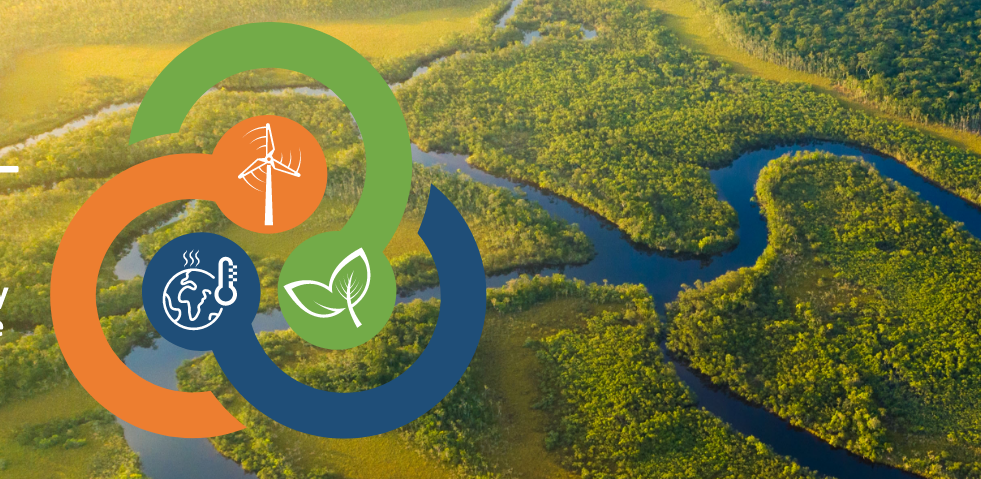A novel DG REGIO initiative supports the Green Deal with cohesion policy
- 12 Jul 2023

C4T was developed with the concept of sustainability transitions as a starting point. Such transitions underpin all the changes we need to make to production and consumption systems to become climate neutral by 2050, and to meet the climate policy targets of the European Green Deal. The application of sustainability transitions to cohesion policy was first developed in a detailed toolkit for managing authorities published in all EU languages in 2020.
Policy objective 2 (PO2) of cohesion policy, titled ‘A greener, low-carbon transition towards a net zero carbon economy and resilient Europe’, gathers all investments relevant to the European Green Deal and its implementation. It is a fundamental lever to implement sustainability transitions. C4T is intended to be a support instrument for the implementation of PO2, specifically to achieve sustainability transitions. This distinguishes it from other technical assistance instruments and initiatives.
To meet its objectives, C4T has been split into five workstreams:
- C4T Groundwork provides tailor-made technical assistance for EU Member States and regions via a dedicated pool of experts that work hand-in-hand with cohesion policy practitioners;
- C4T Working Groups on energy, climate change and environment are composed of managing authorities, intermediate bodies and other public entities and stakeholders involved in the implementation of PO2. Applications to join them are still open via this form;
- C4T Academic Sounding Board is an advisory body of 11 leading academics in the field of sustainability transitions;
- C4T Conference is the key annual meeting for cohesion policy practitioners;
- C4T Forum is a smaller event for stakeholders to network and discuss sustainability transitions and cohesion policy implementation, to take place on 21 November 2023 in Brussels.
What are sustainability transitions?
The concept of sustainability transitions has acquired relevance in the research and policy fields over the past years. There is an increasing awareness that reaching sustainability objectives requires significant societal changes, including to lifestyles, and patterns of consumption and production.
The challenges posed by climate change, biodiversity loss, and resource use need to be addressed not only with environmental policies, but also with changes to socio-technical systems.
These transformations are needed in technologies, infrastructure, legislation, markets, and behaviours. Thus, sustainability transitions can be defined as the long-term transformations of socio-technical systems towards more sustainable modes of consumption and production. C4T aims to address such changes.
The first ever C4T conference
On 6 June 2023, 400 participants from across the EU attended the C4T launch. They included the European Environment Agency (EEA), the European Commission (DG ENER, DG REGIO, DG RTD), Member States and regions, and other stakeholders. The event hosted panels on three topics: sustainability transitions, energy transition, and nature-based solutions for climate adaptation.
In a keynote speech, the EEA said sustainability transitions must encompass the environment, economy and society. Panellists provided examples of sustainability transition measures, including regional green infrastructure strategies (Germany), sustainable waste treatment (Slovenia) and wastewater treatment (Romania) facilities, and local climate adaptation plans (Poland).
DG ENER emphasised the need for profound changes in the EU energy system and empowerment of energy consumers to enable sustainability transitions. The panellists presented several good practice examples of implementation of energy transition measures, including local measures for renewable energy use (Extremadura Energy Agency), energy communities (RESCOOP) and added value of regional energy agencies (FEDERANE).
In the panel on nature-based solutions, DG ENV emphasised that more than half of the global GDP depends on biodiversity and ecosystem services. The panellists discussed examples of nature-based solutions implemented in specific regions and presented examples from Poland, Portugal, Slovakia and Spain.
The C4T Working Groups and Academic Sounding Board
On 7 June 2023, the C4T Working Groups and Academic Sounding Board held their first meetings. During a joint session, they reflected on the challenges and bottlenecks working group members face in financing, project design and management, governance, and fulfilling enabling conditions. Specific topics were discussed during breakout sessions.
Following the joint session with the working groups, the academic sounding board met to discuss how academia can provide solutions to the challenges and gaps managing authorities and implementation face, and which role academia can play in providing solutions.
Examples of these challenges included project selection criteria, long-term planning especially concerning climate change, or providing alternative narratives to change perspectives on, for example, nature-based solutions.
The 1st call of C4T GroundworkClimate adaptation and energy agencies
The first call of C4T Groundwork targets two priorities of PO2: climate adaptation and regional energy agencies. These topics were selected due to the urgent need to use cohesion funding for the energy transition and climate change adaptation. The remaining thematic priorities of PO2 will be decided in the second call of C4T Groundwork, to be launched later in 2023.
Within climate change adaptation, the call focuses on those EU regions that face natural risks caused by climate change. The assistance will support the use of EU funds for climate adaptation and disaster risk prevention and resilience, focusing on nature-based solutions.
Regional/local energy agencies will receive tailor-made assistance to implement the energy transition and develop ‘one-stop-shops’ for energy efficiency projects. The support will start after summer 2023.


